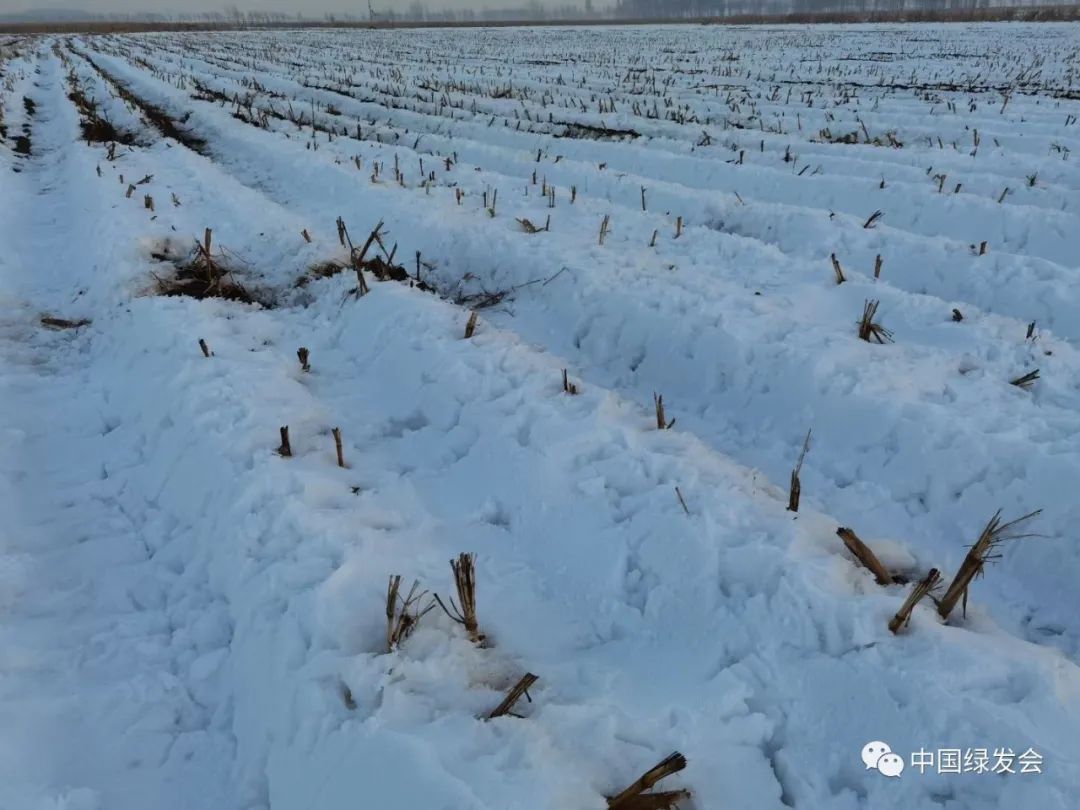The Songnen Plain, northeast China has recently witnessed the heaviest snowfalls in history, with the snow of about 40 cm deep. More than 1,000 cranes are stranded in Huanzidong Wetlands where is unfit for cranes foraging due to the rising water level. For cranes’ sake, the wetland management staff has been offering food 3 times, 500 kilograms of corns and 250 kilograms of peanuts offered the first time alone.
According to observations from Prof. Zhou, cranes rarely picked up food scattered on the ground, instead they prefer to grub the corn kernels soaked in the mud from the mechanically harvest
Deliberate human intervention can disrupt the natural balance of bird species, such as the massive feeding of swans in winter, and the building of artificial nests and feeding of Oriental White Storks all over the world, etc. These artificial behaviors can help or mislead their populations to rise sharply, resulting in the lack of natural ecological capacity of the system and making human-birds conflict more prominent.
For wildlife conservation, Prof. Zhou shared with us his opinions:
1> Never hunt/kill wild animals, for the sake of nature;
2> Never destroy the natural habitat or try to "constructively restore" humanized environment to which wildlife has long been adapted;
3> Save wildlife from human-caused injuries.
Original Chinese article: https://mp.weixin.qq.com/s/6JkKa1wQT3g1B3-3a2Xeig
Translator/Samantha
Contribution
https://www.paypal.me/CBCGDFChina
http://www.cbcgdf.org/English/ConfirmDonaTion/0.html

